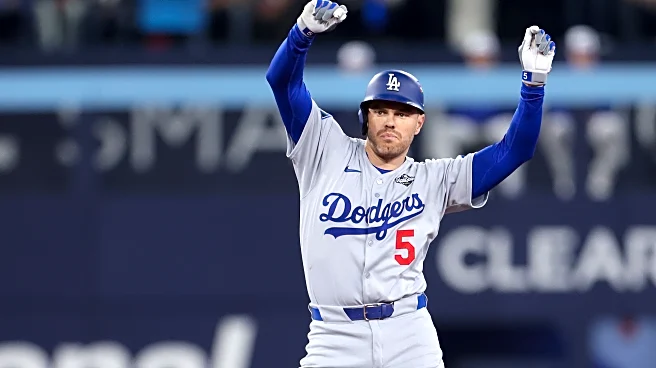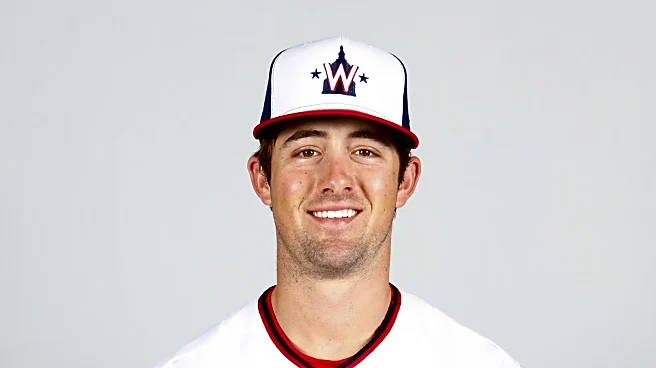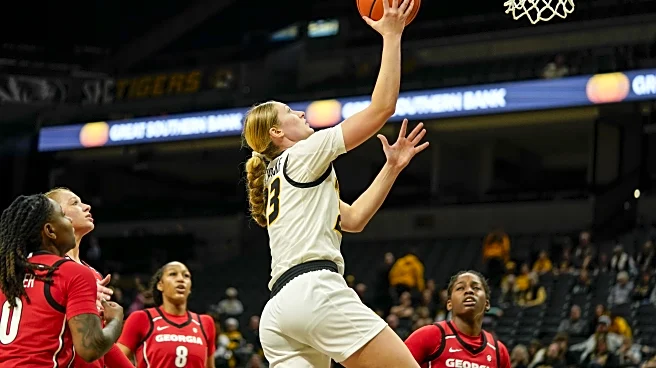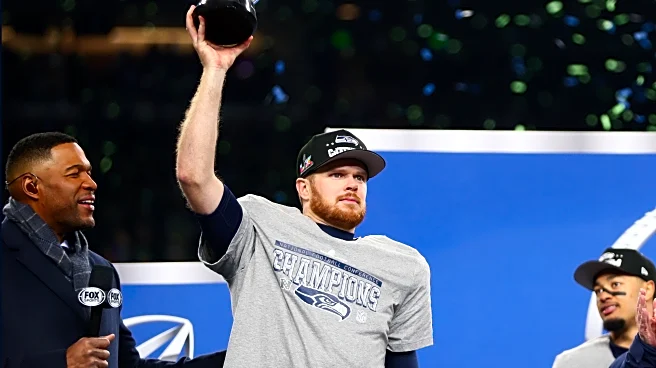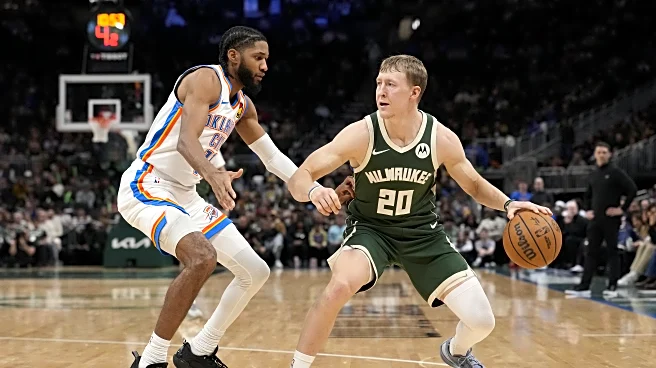What's Happening?
President Trump is set to appear on '60 Minutes' for the first time since settling a lawsuit with CBS over a 2024 segment. The interview, conducted by CBS News anchor Norah O'Donnell, covers a range of topics including Trump's recent meeting with Chinese
President Xi Jinping, U.S. relations with Venezuela and Israel, and the ongoing government shutdown. This marks a significant moment as it reflects a warming relationship between Trump and CBS, following the network's acquisition by Skydance Media and editorial changes under new leadership by Bari Weiss.
Why It's Important?
This interview represents a strategic opportunity for President Trump to re-engage with a major media outlet he has previously criticized. It also highlights the evolving media landscape, where networks are navigating relationships with political figures amid changing ownership and editorial policies. For CBS, the interview is part of a broader effort to rebuild trust and credibility, especially after settling a high-profile lawsuit with Trump. The network's commitment to transparency, by airing unedited interviews, could influence public perception and media practices.
What's Next?
The airing of the interview may prompt reactions from political analysts, media critics, and the public, potentially influencing Trump's public image and media strategy. CBS's editorial direction under Bari Weiss will be closely watched, as the network continues to implement changes following its merger with Skydance Media. The interview could also impact CBS's viewership and reputation, as it seeks to balance journalistic integrity with commercial interests in a competitive media environment.
Beyond the Headlines
The interview and its context reflect broader issues of media ethics, transparency, and the role of journalism in a polarized political climate. CBS's decision to air unedited interviews may set a precedent for other networks, influencing industry standards. Additionally, the settlement with Trump and subsequent editorial changes highlight the complex interplay between media companies and political figures, raising questions about influence, accountability, and the future of news media.



